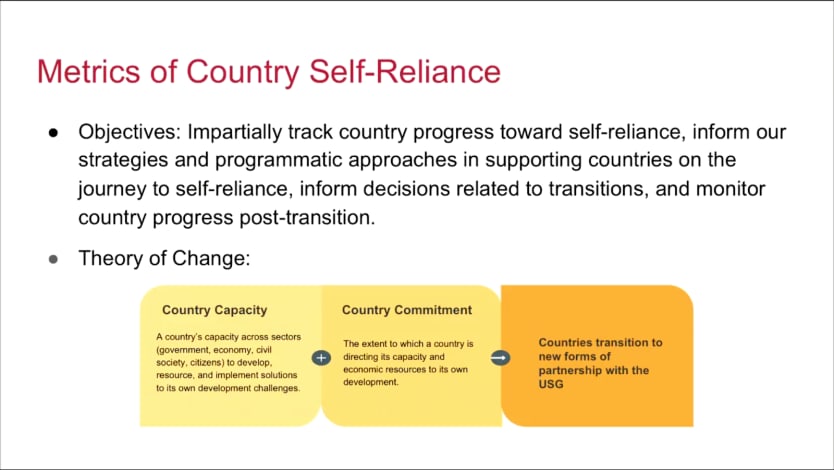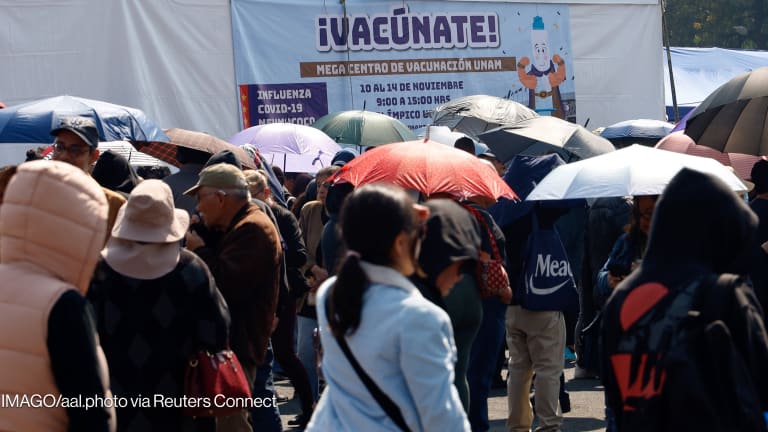
WASHINGTON — From his first day at the office last August, U.S. Agency for International Development Administrator Mark Green has peppered nearly all his public remarks with a common refrain: the purpose of U.S. foreign assistance should be ending its need to exist.
Now Green and his team are trying to figure out how to turn that motto into action — and what it might mean for the agency, its partners, and programs.
Last week the Advisory Council on Voluntary Foreign Assistance held its first meeting of 2018, and the bulk of the gathering of U.S. development leaders focused on what USAID now calls “journeys to self-reliance.” This is a new initiative to examine how USAID’s programs can help countries “transition” from traditional bilateral assistance to a different kind of relationship with the U.S. government as they take on more responsibility for planning, funding, and managing development activities. The work on self-reliance is also referred to as “outcome one” of USAID’s broader redesign effort.
Last fall, shortly after he took office, Green asked the advisory council — ACVFA — to look at how the agency might begin to track countries’ progress toward self-reliance. He tasked a working group to start thinking about a system of metrics that can show how far along a country is on its “development journey,” so that USAID can make sure it is investing in things that facilitate that process and move it forward.
“The most exciting developments, I think, in the development field relate to data, metrics, and targets — information, data, knowledge that can help guide our work in this regard,” Green said.
Green’s emphasis on transitions and building self-reliance has found a convenient middle ground between the Trump administration’s “America First” agenda — which looks warily at spending American dollars outside of narrowly defined American interests — and development experts’ calls for greater “country ownership” of development efforts.
The Modernizing Foreign Assistance Network, a coalition of aid reform advocates, has endorsed the idea that assistance should ultimately strive for self-reliance, and the group submitted a list of principles USAID’s transitions agenda should adhere to, which includes country ownership, mobilizing public sector resources, and transparency, evaluation, and accountability.
“We actually would say that this work is going to take more money, not less money, to actually get on the road to real self-reliance,” said Carolyn Miles, president and CEO of Save the Children.
USAID’s representatives remain adamant that the transitions they call for are not just a clever way to justify harsh budget cuts like those the Trump administration has repeatedly proposed for U.S. foreign affairs agencies.
“It’s not about justifying budget cuts. It’s not about determining which missions we’re going to close. It’s really about doing good development — or doing better development,” said Anu Rajaraman, the self-reliance outcome lead at USAID.
“We’re looking across all of our strategies, our programs, our practices, our incentive structures to ensure that we are optimizing toward that goal of countries being able to develop, finance, and manage their own development,” Rajaraman said.
She added that USAID’s team has communicated this agenda to both the White House Office of Management and Budget — which has been a key driver of the administration’s proposals for deep cuts — and to lawmakers on Capitol Hill, and both have voiced their support.

Still, this effort to apply more scrutiny to USAID’s programming raises questions about which sectors and activities the agency will emphasize under Green’s leadership, how development goals will compete with other Trump administration foreign policy priorities, and whether USAID can sustain nuanced and delicate conversations with its country partners while the president insults them.
“I think what Administrator Green is trying to do here is eminently sensible, of trying to figure out what works and what doesn’t work and bring a more rigorous tint to the analytics around that,” said John Norris, a senior fellow at the Center for American Progress.
“I think there are a lot of issues once you dig into it more deeply,” he added.
For example, Norris pointed out, if USAID starts gathering — and publishing — metrics about the investments that would be most effective in building countries’ self-reliance, what happens when the agency discovers those are not the places and programs where it is investing now? Even if USAID has the political will to shift its spending away from countries that have not demonstrated the will or capacity to take greater ownership, what if the State Department or Defense Department or White House has different, conflicting ideas about where U.S. foreign assistance should go?
“What happens when the dog catches the car?” Norris asked.
The idea of using a set of metrics about country capacity and commitment to development is similar to the “scorecard” method used by the Millennium Challenge Corp. to determine countries’ eligibility for funding. Green, who helped create the MCC and as USAID administrator serves on its board of directors, clarified that USAID’s new metrics will be used differently — not as a “formula in the MCC sense,” but as “mile markers.”
“We’re not looking at inputs, at least not in the ‘widgets in the production line’ sense. As much as possible we’re trying to track and measure capacities,” Green said.
“We’re not recording the number of bed nets produced or delivered. We’re looking at our partner countries’ ability to deliver those bed nets on time, on budget, and increasingly using their own resources, their own networks to make all of these investments sustainable and difference-making,” he added.

The USAID chief also stressed that “journeys to self-reliance” is a work in progress, and that the metrics the working groups have come up with are not yet ready to be rolled out.
Rajaraman declined to specify a timeline for when the new metrics do become operational. But when they do come into operation they will not just be applied to countries where USAID envisions transitioning its relationship but to all of the agency’s strategies and programs, said Susan Fine, senior deputy assistant administrator in the Bureau for Policy, Planning and Learning.
“This is about changing the nature of the relationship that we, USAID, have with developing countries. This is not about graduation. It’s not about closeout. We want to make sure that as countries move along their journey, that we are evolving our partnership with them,” Fine said.
The effort to come up with metrics is also proceeding in tandem with other self-reliance related working groups, focused on issues including private sector engagement and domestic resource mobilization, according to Fine’s presentation.
Read more Devex coverage on USAID.








